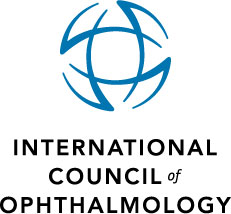| Effect of Fortified Tobramycin and Cephazolin on Acute Microbial Keratitis by Pseudomonas aeruginosa (6 Days of Therapy, Colour Photography) | |
| Colour photography (day 2 after begin of therapy): mild conjunctival congestion, reduced corneal infiltrate, non hypopyon, no endothelial plaques, no satellite lesions Patient: 16 years of age, female, BCVA light perception at OD, antibiogram reveals Pseudomonas aeruginosa, Serratia marcescens, and Strenotrophomonas maltophilia, treatment consisted of topical fortified tobramycin and fortified cephazolin over 10 days. General Medical History: empty. Ocular Medical History: wear of contact lenses. Maint Complaint: sudden begin of blurry vision. Pupose: To present the clinical course and successful treatment of a case of contact lens-associated microbial keratitis under a local therapy with tobramycin and cephazolin. Methods: Colour photography anterior segment. Findings: Colour photography (before therapy): moderate conjunctival congestion, corneal infiltrate, hypopyon, no endothelial plaques, no satellite lesions. Colour photography (day 2 after begin of therapy): mild conjunctival congestion, reduced corneal infiltrate, non hypopyon, no endothelial plaques, no satellite lesions Colour photography (day 6 after begin of therapy):mild conjunctival congestion, reduced corneal infiltrate, non hypopyon, no endothelial plaques, no satellite lesions. Colour photography (day 8 after begin of therapy): mild conjunctival congestion, reduced corneal infiltrate, non hypopyon. Discussion: Microbial keratitis is a serious complication of contact lens wear. Hoddenbach et al. (1) analyzed 108 patients (mean age 33.3 ± 15.4 years) with contact lens-associated microbial keratitis hospitalized in the Rotterdam Eye Hospital. They found, that Pseudomonas aeruginosa was the most frequently isolated microorganism (69 %), with minor resistance to gentamicin (2.7 %) and ofloxacin (1.3 %). After intensive treatment, the visual outcome improved considerably. 67 % achieved a BCVA ≥ 0.7 Snellen. 20 % required corneal transplantation. Literature: 1) Hoddenbach, JG; Boekhoorn, SS; Wubbels, R; Vreugdenhil, W; Van Rooij, J; Geerards, AJ. Clinical presentation and morbidity of contact lens-associated microbial keratitis: a retrospective study. Graefes Arch. Clin. Exp. Ophthalmol., 2014 vol. 252(2) pp. 299-306 | |
| Queck, Susanne, Dr.med., Augenklinik, Universitätsklinikum Erlangen, Erlangen, Deutschland, Erlangen, Deutschland; Michelson, Georg, Prof. Dr. med., Interdisziplinäres Zentrum für augenheilkundliche Präventivmedizin und Imaging, Augenklinik, Friedrich-Alexander-Universität Erlangen-Nürnberg, Erlangen, Deutschland | |
| H16.0 | |
| Cornea -> Keratitis, Infectious/ Non-Infectious -> Ulcerative Keratitis, Corneal Ulcer -> Effect of Fortified Tobramycin and Cephazolin on Microbial Keratitis by Pseudomonas aeruginosa (Clinical Course 8 Days, Colour Photography) | |
| 10013 |
|
||||||||||||
Effect of Fortified Tobramycin and Cephazolin on Acute Microbial Keratitis by Pseudomonas aeruginosa (6 Days of Therapy, Colour Photography)-------------------------- -------------------------- -------------------------- -------------------------- -------------------------- -------------------------- -------------------------- -------------------------- -------------------------- -------------------------- -------------------------- -------------------------- |
||||||||||||




